Muscle cramps during training or an event can range in severity from uncomfortable to debilitating, and theories abound regarding methods of avoiding and/or treating them. Some of these are backed by solid science, while others are myths and misconceptions. One increasingly popular “home remedy” for muscle cramping is pickle juice; it’s not only high in sodium (a deficit of which may be one cause of muscle cramps, as sodium is critical to normal muscle function), it’s also acidic. Some exercise physiologists wonder whether the acid could have metabolic consequences or speed hydration.
A number of studies have examined the use of pickle juice in athletic settings. A compositional analysis (Dale et al) looked at the sodium content of various commercial pickle juices. Values ranged from about 220-390 mg of sodium per serving, where osmolarity (a measure of sodium per unit water) in all cases was much higher than that recommended by exercise physiologists for use as a rehydration fluid. The concerns raised by this study were twofold: first, that such high concentrations and net quantities of sodium could have negative physiological consequences, and second, that the risk of these consequences was not mitigated by clear scientific evidence of pickle juice’s ability to relieve cramps.
Since the compositional analysis, a few additional studies have looked at pickle juice specifically with regard to cramp-relieving capability. A 2009 study found that individuals who consumed pickle juice prior to being subjected to an electrically-stimulated muscle cramp experienced a significantly shorter cramp (by about 50 seconds) than those who did not consume pickle juice (Miller). The pickle juice did not appear to affect concentrations of sodium or other substances within the blood plasma quickly enough to account for its apparent cramp-relieving effects, suggesting that if pickle juice was, in fact, responsible for helping to relieve cramps, the effect was probably not metabolic. While these data sound promising, there are two major limiters associated with this study (which was, incidentally, dissertation work that appears never to have been published in a peer-reviewed academic journal). The first limiter is that the study was not blinded; subjects either consumed pickle juice or plain water. If the pickle juice-consuming subjects believed the juice would help relieve cramps, they might have experienced a placebo effect (cramp duration was self-reported). The second limiter is that the cramps were electrically-stimulated, meaning that the results can’t be generalized to exercise-induced cramps, the mechanisms and causes of which are not yet completely understood.
A third study (Miller et al) examined effects of pickle juice consumption upon gastric emptying (stomach emptying), which is a concern because athletes — particularly distance runners — can be plagued by “stomach sloshing” as a result of delayed gastric emptying following fluid consumption. The results of this study suggest that pickle juice consumption does result in delayed gastric emptying, likely because of the high concentrations of salt and acid. This has the potential to be a major negative side effect associated with pickle juice.
Base upon the existing data, it does not appear that scientific evidence supports pickle juice consumption for prevention or alleviation of cramps.
Have you tried (or would you try) pickle juice for cramps?
References:
Dale et al. A Compositional Analysis of a Common Acetic Acid Solution With Practical Implications for Ingestion. J Athl Train. 2003 Mar;38(1):57-61.
Miller, K. Plasma and EMG responses during an electrically-induced muscle cramp and following pickle juice and water ingestion. Dissertation, Brigham Young University, 2009.
Miller et al. Gastric emptying after pickle-juice ingestion in rested, euhydrated humans. J Athl Train. 2010 Nov-Dec;45(6):601-8.


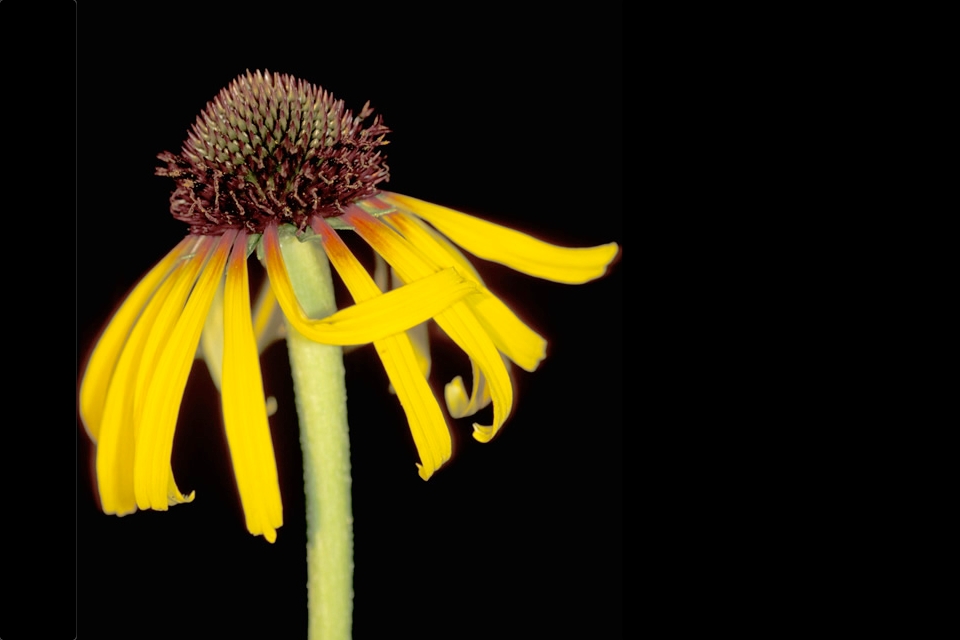
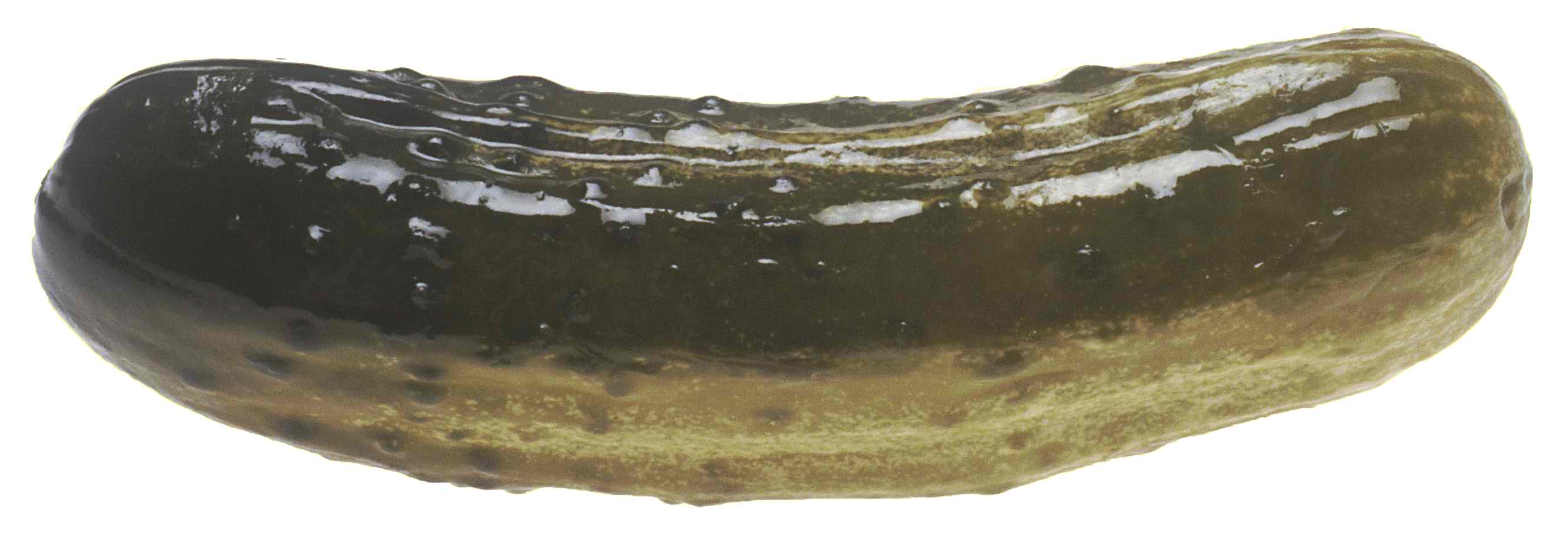
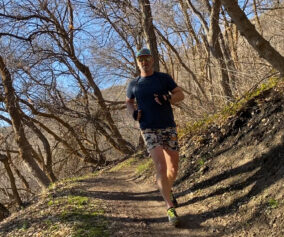
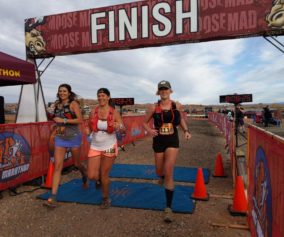
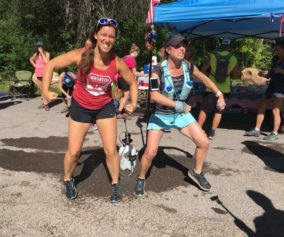






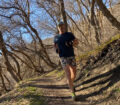

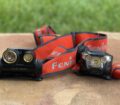

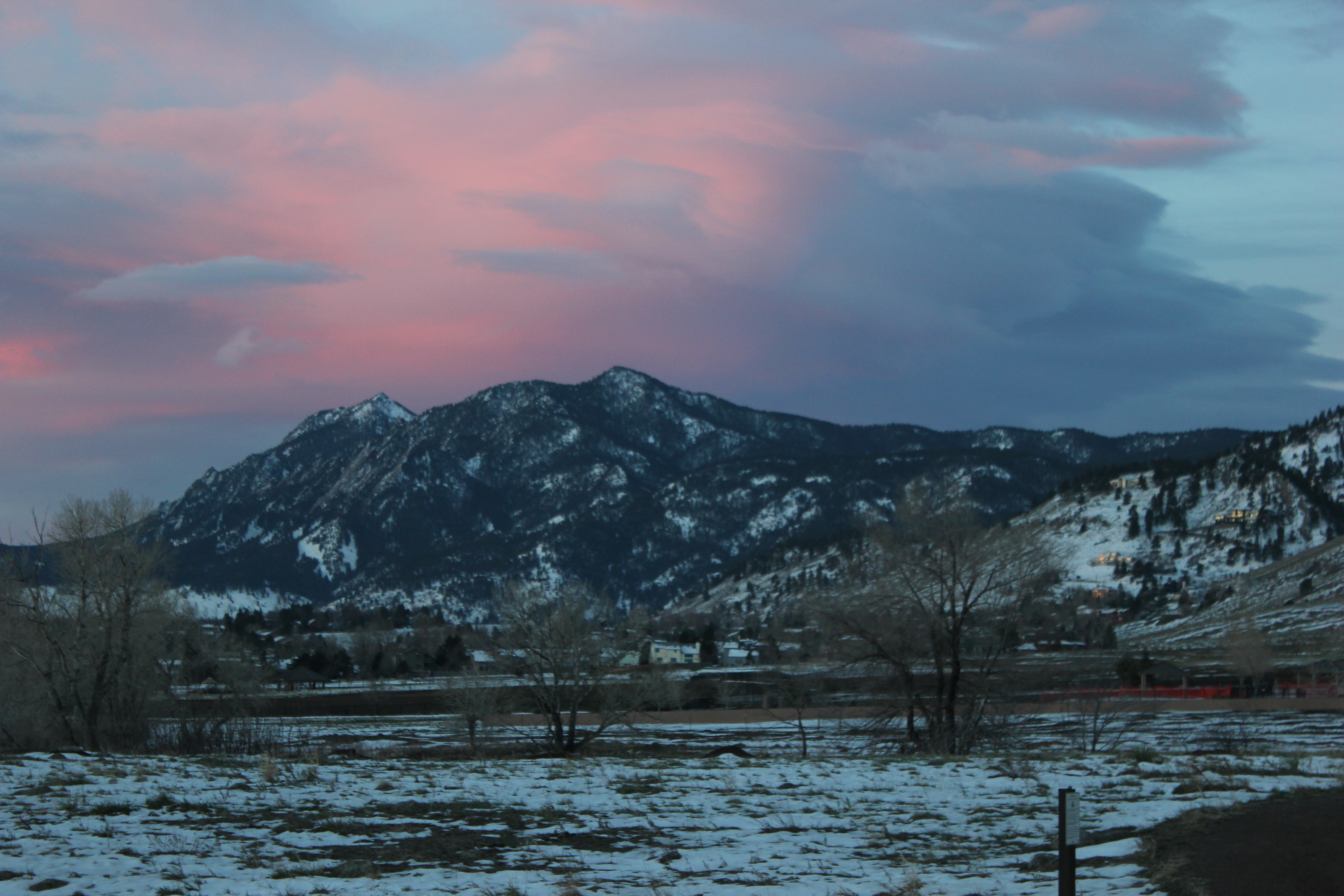



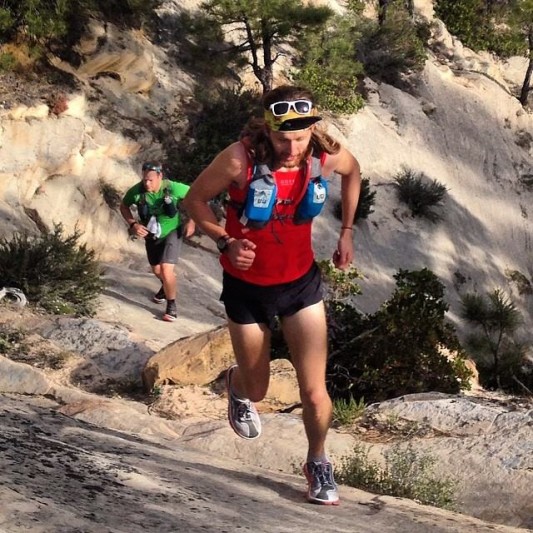
You Rock! Great work! I hope it does turn out to work. I’d be so happy!
Funny this should pop up a day after my 50k where at mile 27 started cramping and stopped at an aid station mentioning I had started cramping and a volunteer offered me a pickle. Said the juice was better. Never heard of it before but tried it. Didn’t spasm at all the next 3.5 miles to the finish. Coincidence? Not sure but Id try it again.
I think there is something there. Hopefully more science will tell us more in the future. I’m a little worried about clearing of the stomach but stopping the cramping is more important.
I started using pickle juice for cramps after reading an article in a running pub titled “thank you Mrs. Vlassic.” It works every time very quickly for cramps experienced in my legs when sleeping after walking a couple miles and yoga. It’s like magic and I wonder why/how this works so well.
[…] Pickle Juice – as we reported last year there’s evidence surrounding the power of pickle juice to eliminate muscle cramps once they occur. I and others have test this repeatedly during the last 8 months with almost […]
I have used pickle juice to relieve cramps and it is very effective. I thought I’d try it one time after seeing that the BYU football team uses it to releive/ eliminate cramping. After a long hot day in the yard with inadequate hydration, I started cramping up, so I went in the house and drank some pickle juice. Shortly thereafter…cramps gone!! It works, don’t know why it works but it does.
I have systemic lupus and muscle pain/cramps are a horrible effect of the disease. Usually so bad it confines me to bed crying. Tonight I tried the pickle juice thinking it wouldn’t help but might as well try with the pain I was in. It didn’t stop the pain but it took it down considerably. I don’t know how it works but it is a wonderful new tool for me and other sufferers to gain some relief that even strong meds cannot bring. I’m thrilled about this and only wish I had found it sooner!
[…] I had a segment about pickle juice alleviating cramps, but removed the segment when some articles questioned the vailidy of the research. http://trailandultrarunning.com/does-pickle-juice-prevent-or-alleviate-muscle-cramps/ […]
fantastic points altogether, you simply won a new reader.
What would you suggest in regards to your post that you
made a few days in the past? Any positive?
Feel free to surf to my site muscle king pro review
well, every time I ride, at about the 50 mile mark I start to cramp, and at 60 it becomes almost unbearable. I’ll give this a shot and see how it works.
I use pickle juice when I get a Charley Horse in the middle of the night. It’s hard to drink, but I hold my breath and drink about 4 oz. or so. The Charley Horse pain is gone in about 15 seconds. I can actually feel the muscle relaxing. My daughter’s boyfriend got a Charley Horse in each calf so bad he couldn’t get out of bed. She asked him if he wanted to drink some of “Mom’s Pickle Juice” (she saves it for me) and he said yes. He said the pain was gone in about 15 seconds. It happened again to him a couple of weeks later and again the pickle juice got rid of the pain in about 15 seconds. It works! It really works! We eat pickles don’t we? Now we have a use for the juice. Dee
yes pickle juice works i have spinal cord injury and get muscle spazams everywhere including sides back neck and thighs at same time as long as 4 hours i was taking quinine untill fda banned it ive used at least 10 prescription drugs that dont work but juice is so far the best thing have even gone to E.R in ambulance and all they did was knock me out with narcotics
Hi folks!
A question; what pickle juice do you use? Is it just plain juice from a can of pickled cucumbers or someting more hi-tech that you buy in shops? I wonder cause where I live, in sweden, we dont have pickled juice as I know you can buy in the states, designed for atlethes. Obviously we’ve got regular jars of pickled cuecumbers though, is it the same?
Doing a 90 k cross country ski race for the 4th time, and have suffered from muscular cramp (more or less) in my first 3 races, so really wanna find a soloution!
Thankful for any advice!
You can use it from the pickle jar or buy it in special containers for athletes. Both will work. Also consider Hylands Leg Cramps tablets. Very good.
IT WORKS!!! I TAKE 2 SPOONS BEFORE BED. THE ONLY TIME I HAVE HAD CRAMPS IS WHEN I FORGOT TO TAKE IT. AND THEN–I CAN TAKE IT AND IT RELIEVES IT IMMEDIATELY. MY GRANDDAUGHTER FIRST TOLD ME ABOUT THIS AND THEN MY ARTHRITIS SPECIALIST IN SHREVEPORT, LA TOLD ME ABOUT IT TOO. IT IS CHEAP AND WE ALWAYS HAVE A JAR OF PICKLES IN THE REFRIGERATOR—AND IT WORKS FOR ME